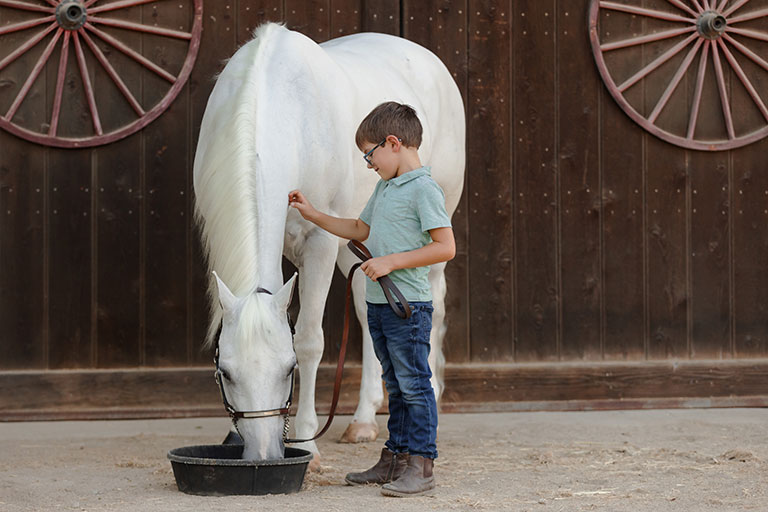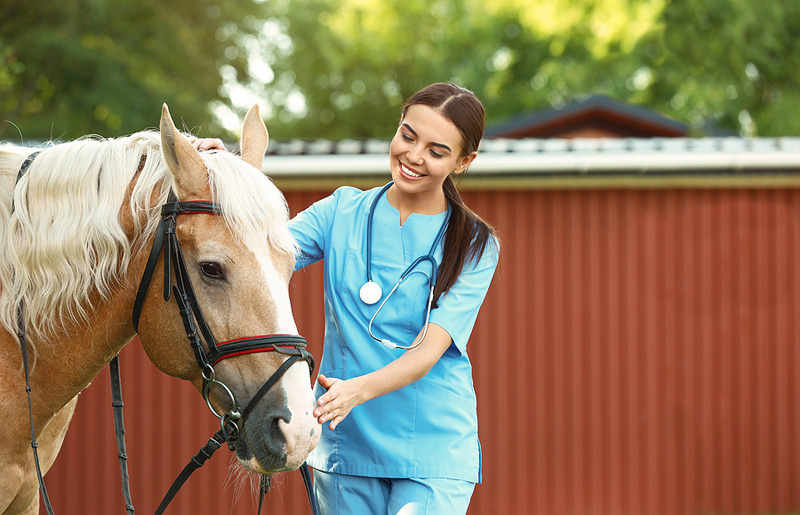As horses age, their care requirements evolve significantly. One crucial aspect of maintaining a healthy senior horse is a well-planned deworming schedule. A strategic approach to deworming can help your beloved equine companion live a longer, healthier life. This guide will walk you through everything you need to know about establishing an effective senior horse deworming schedule.

Understanding the Importance of Deworming
Deworming is essential for controlling parasite loads in horses. As horses age, their immune systems may weaken, making them more susceptible to parasites. It’s crucial to adapt your deworming strategy to meet the specific needs of senior horses. A proper senior horse deworming schedule can prevent a host of health problems, including weight loss, colic, and anemia.
Parasite Types to Watch For
There are several types of parasites that commonly affect horses. Some of the most prevalent include small strongyles, large strongyles, tapeworms, and roundworms. Understanding these parasites and their life cycles is crucial for creating an effective deworming schedule. For comprehensive information on parasite types, visit Rutgers Equine Science Center.
Tailoring the Deworming Schedule for Senior Horses
When designing a senior horse deworming schedule, it’s essential to consider factors such as age, health status, and environmental conditions. Older horses may require a more frequent deworming schedule due to their potentially weakened immune systems. Consulting with a veterinarian who specializes in equine care can provide valuable insights tailored to your horse’s specific needs.
Frequency of Deworming
The frequency of deworming for senior horses can vary based on several factors. Generally, it’s recommended to deworm senior horses every 6-8 weeks. However, this can change depending on your horse’s environment, health status, and local parasite prevalence. Regular fecal egg counts (FEC) can help determine the appropriate deworming frequency.
Seasonal Considerations
Seasonal changes can impact parasite levels. Spring and fall are typically high-risk periods for parasite infections, making them critical times for deworming. Adjusting your senior horse deworming schedule to accommodate seasonal variations can help maintain optimal health.
Choosing the Right Dewormers
Selecting the appropriate dewormers is crucial for the effectiveness of your senior horse deworming schedule. Rotating between different classes of dewormers can help prevent resistance development. Common classes of dewormers include benzimidazoles, pyrimidines, and macrocyclic lactones.
Consulting with a Veterinarian
Your veterinarian can recommend the best dewormers for your senior horse based on fecal egg counts and the specific parasites present. Regular consultations with your vet ensure your deworming strategy is both effective and safe.
Monitoring and Adjusting the Schedule
Regularly monitoring your horse’s health and parasite load is essential for an effective senior horse deworming schedule. Fecal egg counts provide valuable data that can guide adjustments to your deworming plan. If you observe any signs of parasitic infection, such as weight loss or a dull coat, consult your veterinarian for advice.
Signs of Parasitic Infection
Common signs of parasitic infection in horses include weight loss, a dull coat, lethargy, and colic. If you notice these symptoms, it’s crucial to consult with a veterinarian promptly. Early detection and intervention can prevent more severe health issues.
Integrating Deworming with Overall Horse Care
A comprehensive approach to horse care, including proper deworming, nutrition, and dental care, is vital for maintaining the health of senior horses. For tips on senior horse nutrition, explore senior horse hay requirements and supplements for aging horses.
Importance of Nutrition and Hydration
Proper nutrition and hydration are crucial for supporting the immune system and overall health of senior horses. Ensuring your horse has access to high-quality forage and clean water is essential. Learn more about maintaining hydration with senior horse hydration tips.
Dental Care
Dental health is another critical aspect of caring for senior horses. Regular dental check-ups can prevent issues such as tooth grinding, which can exacerbate health problems. For more information, read about horse tooth grinding problems.
Conclusion
Creating an effective senior horse deworming schedule is an essential component of equine care. By understanding the specific needs of senior horses, selecting the right dewormers, and integrating deworming with comprehensive horse care, you can ensure your senior horse lives a healthy and fulfilling life.

FAQ
What are the common signs of parasitic infection in senior horses?
Common signs include weight loss, a dull coat, lethargy, and colic. If you observe these symptoms, consult with a veterinarian promptly.
How often should I deworm my senior horse?
The frequency can vary; however, it’s generally recommended every 6-8 weeks, adjusted based on fecal egg counts and environmental factors.
Why is it important to rotate dewormers?
Rotating dewormers helps prevent resistance development, ensuring that your deworming strategy remains effective over time.
This article contains affiliate links. We may earn a commission at no extra cost to you.
